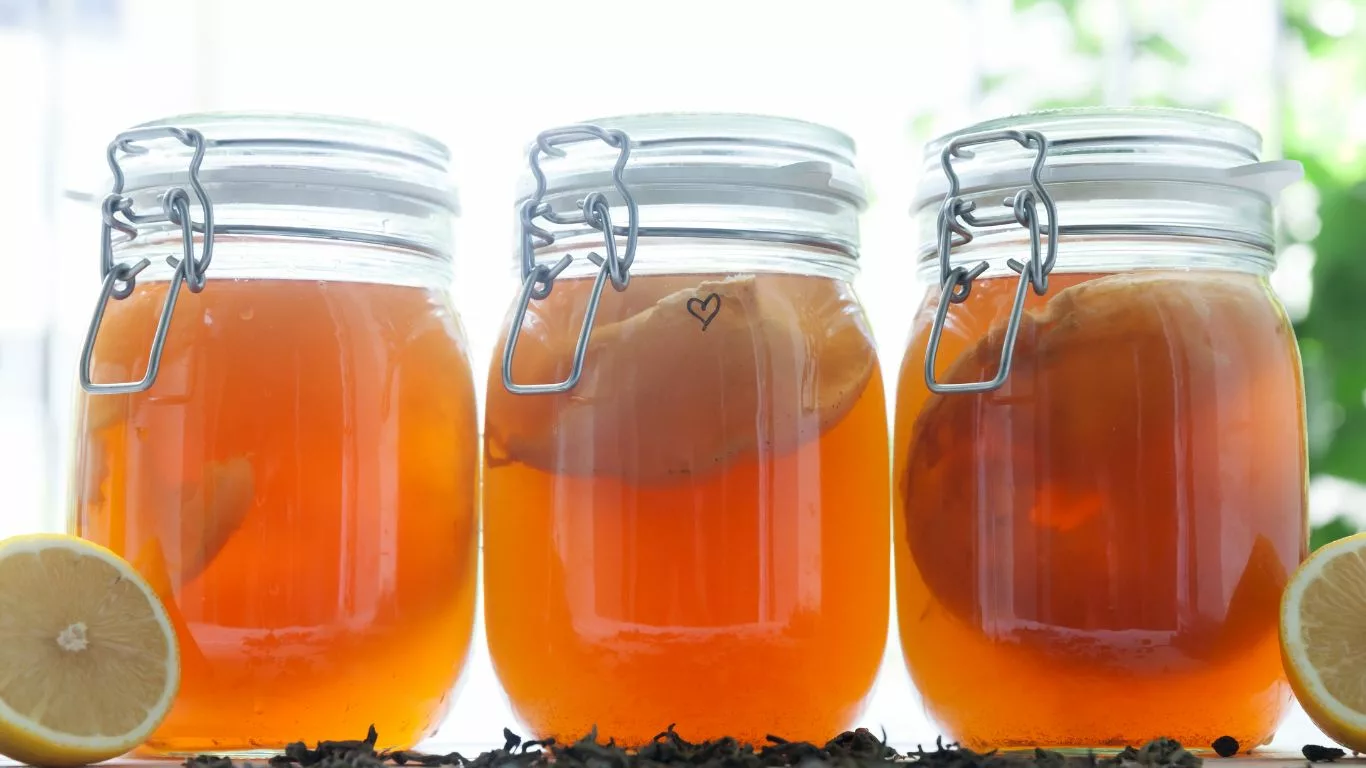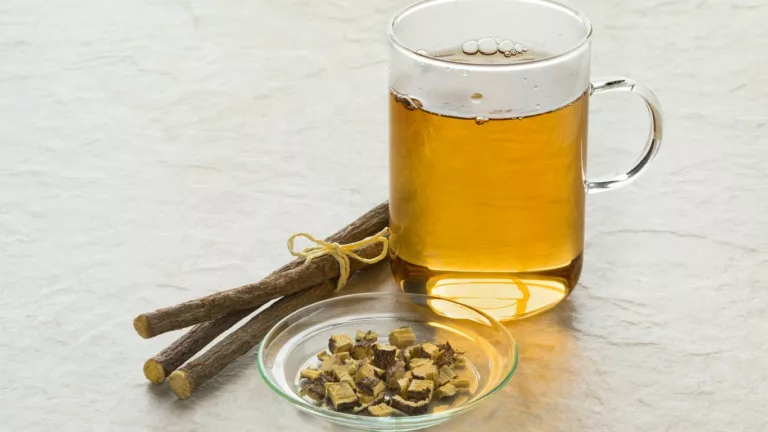The Best Fruits for GERD – A Guide to Soothe Your Digestive Woes
Having GERD doesn’t mean you have to give up on tasty foods—fruits can actually be a great way to keep your digestive system happy. In this guide, we’ll dive into the best fruits for GERD, share practical tips, and discuss how certain fruits can help soothe your symptoms and keep you feeling your best.
If you’re one of the many people struggling with GERD (gastroesophageal reflux disease), you know how difficult it can be to figure out what foods to eat without triggering symptoms. Acid reflux, heartburn, and that uncomfortable burning sensation in your chest—these are just some of the daily challenges of living with GERD. But here’s some good news: You don’t have to completely avoid fruits! In fact, many fruits are actually great for GERD and can help manage symptoms without causing discomfort.

Understanding GERD: Why It Affects What You Eat
GERD happens when stomach acid flows backward into the esophagus, causing irritation and inflammation. This is often triggered by certain foods and beverages that relax the lower esophageal sphincter (LES)—the muscle that keeps acid in your stomach where it belongs. When the LES isn’t functioning properly, acid can escape, leading to heartburn and other unpleasant symptoms.
It’s essential to avoid foods that can irritate your stomach lining or relax the LES, but the good news is that many fruits are naturally gentle on your digestive system. The key is knowing which ones to choose and which ones to avoid. Let’s take a look at some of the best fruits for GERD and how they can help ease your symptoms.
The Best Fruits for GERD: What to Reach For
When it comes to fruits for GERD, you’ll want to pick options that are not too acidic, which can aggravate the esophagus. Think gentle, soothing, and easy on the stomach. Here are some of the best fruits that are generally safe and even beneficial for people with GERD:
1. Bananas: A GERD-Friendly Powerhouse
Bananas are not only delicious but also super gentle on your stomach. They have a natural antacid effect and can help soothe the digestive tract, reducing the likelihood of acid reflux. Bananas also contain fiber, which can help keep you regular. So if you’re looking for a snack that won’t irritate your GERD, grab a banana!
2. Melons: Refreshing and Non-Acidic
Melons, like cantaloupe and watermelon, are excellent choices for those with GERD. These fruits are low in acid and high in water content, which can help keep you hydrated and calm your stomach. Plus, they’re light and refreshing—perfect for a hot day or as a snack between meals. If you’re looking for something gentle yet tasty, melons are the way to go.
3. Apples (In Moderation): The Mild, Crunchy Delight
Apples can be great for GERD, but it’s important to keep a few things in mind. While they are not as acidic as citrus fruits, they do contain some natural acids. Opt for sweeter varieties like Fuji or Gala apples, which tend to be gentler on the stomach. Apples are packed with fiber, which can help with digestion and regulate bowel movements. Just be sure to peel them if you have a sensitive stomach, as the skin can sometimes be tough to digest.
4. Pears: Sweet and Soothing
Pears are another great fruit for GERD. They are naturally sweet and low in acid, which makes them a perfect choice for anyone dealing with acid reflux. The fiber in pears also helps improve digestion, and their high water content can keep your digestive system running smoothly. Whether you eat them fresh, baked, or in smoothies, pears can be a delightful addition to your GERD-friendly diet.
5. Avocados: Not Just for Guacamole
While not a typical “fruit” in the traditional sense, avocados are a fantastic option for GERD sufferers. They are low in acidity and high in healthy fats, making them an excellent food for calming the digestive system. Plus, they’re super versatile—you can toss them into salads, spread them on toast, or blend them into smoothies. Avocados can provide you with a creamy, satisfying texture without the acid reflux flare-ups.

Fruits to Avoid with GERD: What to Steer Clear Of
While there are plenty of fruits that can help with GERD, some can make things worse. These fruits are typically high in acid, which can irritate the esophagus and lead to uncomfortable heartburn. Here are some fruits you may want to avoid or consume in very limited quantities:
Citrus Fruits: Oranges, Lemons, Grapefruits
Citrus fruits are notorious for being acidic. While they may be packed with vitamin C, they can aggravate GERD symptoms by increasing stomach acid production. Oranges, lemons, and grapefruits are best avoided if you’re prone to acid reflux.
Tomatoes: A Hidden Culprit
Although technically a fruit, tomatoes are highly acidic and can trigger GERD symptoms for many people. Whether they’re raw or cooked, tomatoes can lead to discomfort, so it’s best to limit or avoid them if you have GERD.
Pineapple: Delicious but Potent
Pineapple is another fruit that’s packed with acidity, which can irritate the esophagus. While it’s delicious and rich in nutrients, it’s best to keep it as an occasional treat rather than a regular part of your diet.

How to Incorporate GERD-Friendly Fruits Into Your Diet
Now that you know which fruits are great for GERD, let’s talk about how to enjoy them. Here are some simple ways to add GERD-friendly fruits to your meals:
1. Smoothies: Blend It Up
Fruits like bananas, pears, and melons make fantastic smoothie ingredients. Blend them with some low-fat yogurt or almond milk for a refreshing and soothing treat. The creamy texture of a smoothie can be easy on your stomach and provide you with the nutrients you need without triggering acid reflux.
2. Fruit Salads: Refreshing and Nutritious
A fruit salad with bananas, pears, and melons is a great way to mix up your GERD-friendly fruit intake. You can add a sprinkle of cinnamon or a drizzle of honey for extra flavor. Just be sure to avoid adding acidic fruits like citrus or pineapple.
3. Snack on Fresh Fruit
Grab a banana or a pear as a quick, easy snack. These fruits are perfect for on-the-go and can help curb hunger between meals without upsetting your stomach.
Conclusion
Living with GERD means making smarter food choices, but that doesn’t mean you have to skip out on all the delicious fruits nature has to offer. By choosing GERD-friendly options like bananas, melons, pears, and avocados, you can soothe your digestive system and keep your symptoms at bay. Keep a variety of these fruits in your diet, and experiment with different ways to incorporate them into your meals. With the right fruits, you can enjoy your food while keeping your GERD in check.
FAQs
- Can I eat grapes with GERD? Grapes are typically low in acid, but they can be a trigger for some people with GERD. If you’re unsure, try eating a small amount and see how it affects you.
- Are dried fruits okay for GERD? Dried fruits, like raisins, can be more concentrated in sugars and acids. They may irritate your GERD symptoms, so it’s better to opt for fresh fruits instead.
- Is fruit juice okay with GERD? Fruit juices—especially citrus juices—can be highly acidic and may trigger symptoms. If you must have juice, opt for low-acid varieties like apple or pear juice, but limit your intake.
Related Table: GERD-Friendly Fruits
| Fruit | Acidity Level | Recommended for GERD? |
|---|---|---|
| Bananas | Low | Yes |
| Melons (Cantaloupe, Watermelon) | Low | Yes |
| Pears | Low | Yes |
| Apples | Moderate | Yes (in moderation) |
| Citrus Fruits | High | No |
Disclaimer: The information in this article is for educational purposes and should not replace medical advice. Always consult with your healthcare provider before making any dietary changes, especially if you have a medical condition like GERD.

Camellia Wulansari is a dedicated Medical Assistant at a local clinic and a passionate health writer at Healthusias.com. With years of hands-on experience in patient care and a deep interest in preventive medicine, she bridges the gap between clinical knowledge and accessible health information. Camellia specializes in writing about digestive health, chronic conditions like GERD and hypertension, respiratory issues, and autoimmune diseases, aiming to empower readers with practical, easy-to-understand insights. When she’s not assisting patients or writing, you’ll find her enjoying quiet mornings with coffee and a medical journal in hand—or jamming to her favorite metal band, Lamb of God.







